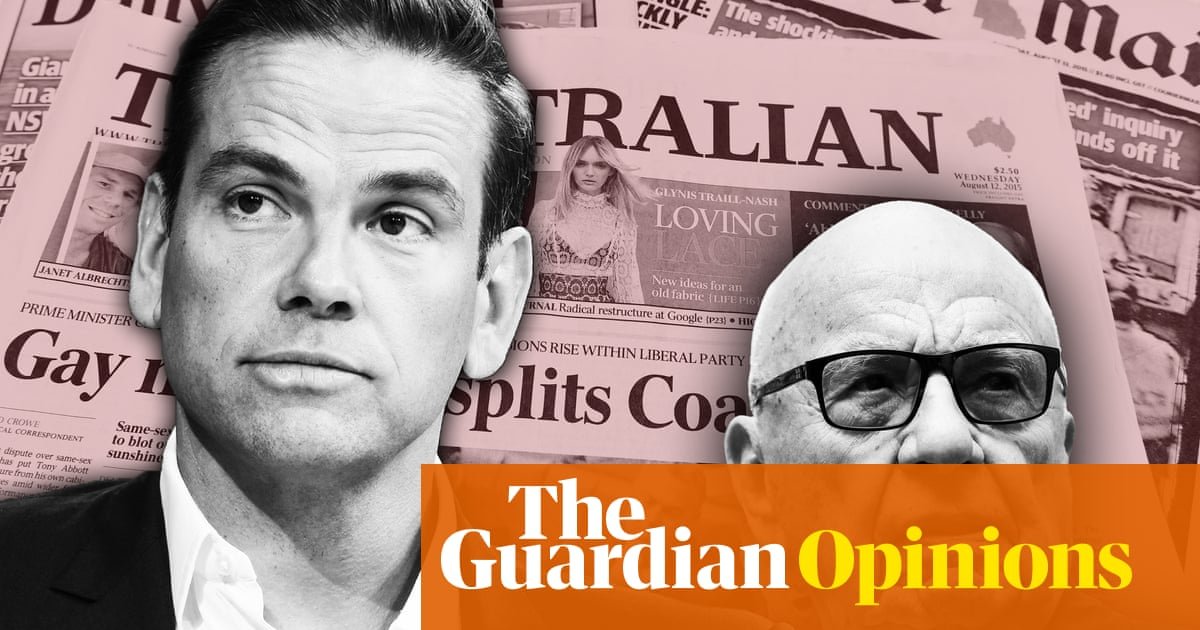Dynasties are rare in Australia. Those that want to change their homeland, generation after generation, are rare everywhere.
Most democracies aim to keep it like that. As US president Joe Biden said in his retirement address, “presidents are not kings”.
When King Charles and Queen Camilla boarded their gilded carriage to travel to Westminster to open the British parliament last week, they were following dynastic protocol. King Charles balanced his bejewelled crown and spoke about the change “my government will” introduce. But delivering this reform message, garbed in upmarket fancy dress, invited his subjects to wonder just how much change he would welcome.
In the US the newly minted Maga branch of the Trump family aroused passions at the Republican convention by promising to strengthen their dynasty.
Meanwhile in Australia the third generation of the homegrown Murdoch dynasty declared victory. “I believe that if it wasn’t for The Australian today, if the policy debate in Australia today was being driven by the ABC, then we would be a totally different country.”
If only, the more than half million who signed the petition backing a royal commission into the operations of News Corporation may have muttered to themselves.
It was a big call by Lachlan Murdoch. It highlighted that his shrinking newspapers and the broadcast interests that might be about to be rebranded and relocated to the company’s Australian headquarters use journalism as a means to an end. He implied the mission was to shape hearts and minds in an undeclared war with the public broadcaster that remains, by a significant margin, Australians’ most trusted source of news and information.
In the pantheon of statements by press barons (canvassed by Eric Beecher in his forthcoming book, The Men Who Killed the News) it was also somewhat unusual. It made more sense when news broke that Rupert Murdoch was prepared to drive a wedge between his very rich children, by reshaping the family trust to ensure News Corp’s aggressive politics are not diluted after his death.
His son’s statement a couple of week earlier belled the cat. Most media barons have generally preferred to hide behind the slippery language of journalistic impartiality, as the “feedback mechanism of democratic system management”, rather than admit to being a player trying to change their society by shaping debates.
The grubby little secret of using their media power to advance their own fortunes, could once be tolerated if they played within the rules of fairness, impartiality, and truth. But those principles are now on life support.
In Australia, as in many countries, media regulation has become a shadow its former self. Insulating profits have evaporated, leaving a whiff of desperation and nervous politicians. The new online players unapologetically put company before country – they don’t care what information flows from their platforms, so long as they capture attention and make a buck.
But seeking to change Australian society is in the Murdoch dynasty’s DNA, as Walter Marsh vividly documents in Young Rupert. Perversely the man who once considered himself an outsider is now a dominant member of the establishment. The man who once wanted to shake up the society, now watches his outlets block long overdue change, mock innovation, foster fear and pick on the weak.
Sixty years earlier The Australian promised something quite different. To provide “the impartial information and the independent thinking that are essential to the further advance of our country. This paper is tied to no party, to no state and has no chains of any kind.”
If only that could still be said with a straight face.
It was a paper of its time. Australians, according to the newspaper published on Wednesday 15 July 1964 were immature, lacking self-control and essentially lazy, struggling to adjust to being abandoned as “mother” turned towards Europe and away from her far-flung dominions. It was time to grow up.
The new paper appealed to the hearts of “the thinking men and women” of the country who were hungry for change and willing to be guided by “the shrewdest and best-informed journalists in the nation”.
Later that year The Lucky Country was published and with considerable promotional assistance from The Australian quickly became a surprising bestseller. Both nudged several decades of substantial change.
As national confidence grew, the public broadcasters also became bolder in their mission to inform, educate and entertain. They grasped the mantle defined in the first edition of The Australian, encouraging independent programming and journalism, to “advance our country”.
Last week the Strengthening Australian Democracy report reflected on the fragility of Australian institutions. It noted, “Australians continue to admire and support our public broadcasters as constant sources of quality information and key players in our democratic arenas of public debate.” Those surveyed regarded misinformation was the biggest democratic concern.
In his anniversary interview Lachlan Murdoch blamed misinformation on the online platforms, where most people now find their news and information. “Social media platforms don’t value journalism … The power they now have in our politics far outweighs their roots in this society. There’s no balance.”
Misinformation can never be balanced. It is corrosive by design and most effective when its conspiracy theories and lies are amplified by the legacy media. “Impartial information and independent thinking” remain essential.
